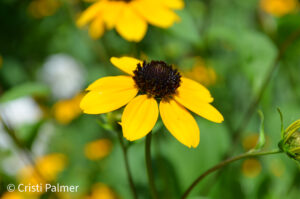
Pendimethalin has been registered in the United States since 1994 for uses in and around environmental horticulture plants in production nurseries and in landscapes. Between 1981 and 2021, the IR-4 Project has conducted 559 trials using two granular formulations (Corral 2.68G and Pendulum 2G), two liquid formulations (Pendulum AquaCap and Prowl 4E) and a wettable dry granular formulation (Pendulum WDG). Between 2014 and 2018, Pendulum 2G was examined for use on ornamental grasses. During 2020 and 2021, Pendulum 2G was a part of a project to examine options for field in-ground cutflower growers. This summary contains data across all the reports available through IR-4 since screenings began in 1981.
Ninety plant species or genera exhibited no or minimal, transitory phytotoxicity to over the top applications of Corral 2.68G and Pendulum 2G formulations. Seven species exhibited significant injury at the 1X rate, including many succulent species produced for greenroof installations. For 86 genera/species, more information is needed either because only 1 or 2 trials were conducted or because consistent results were not achieved among the research sites. The 67 crops with asterisks exhibited no or minimal transitory injury. Perovskia atriplicifolia, a crop that is already on the Pendulum 2G label, showed no significant phytotoxicity at 1.5, 3 and 6 lb ai per acre but dry weight decreased significantly with increasing rate. Two other crops in the label, Rudbeckia hirta and Zinnia sp., showed minor to moderate injury and biomass reduction with 3, 6 and 12 lb ai per acre. For cutflowers grown in ground, Cosmos exhibited no injury to Pendulum 2G in 3 trials, while Solidago exhibited minor but commercially acceptable injury in 2 out of 3 trials.
